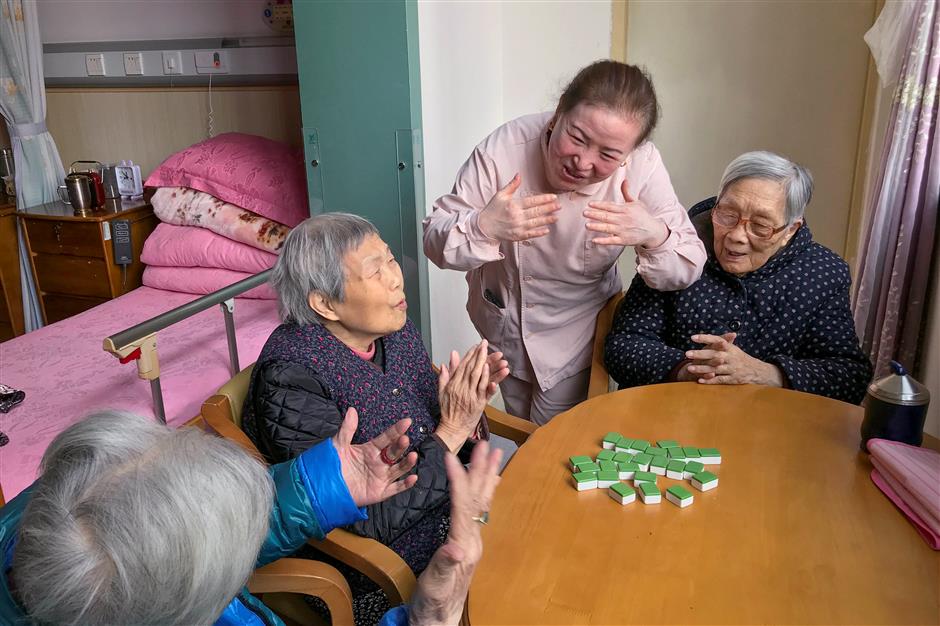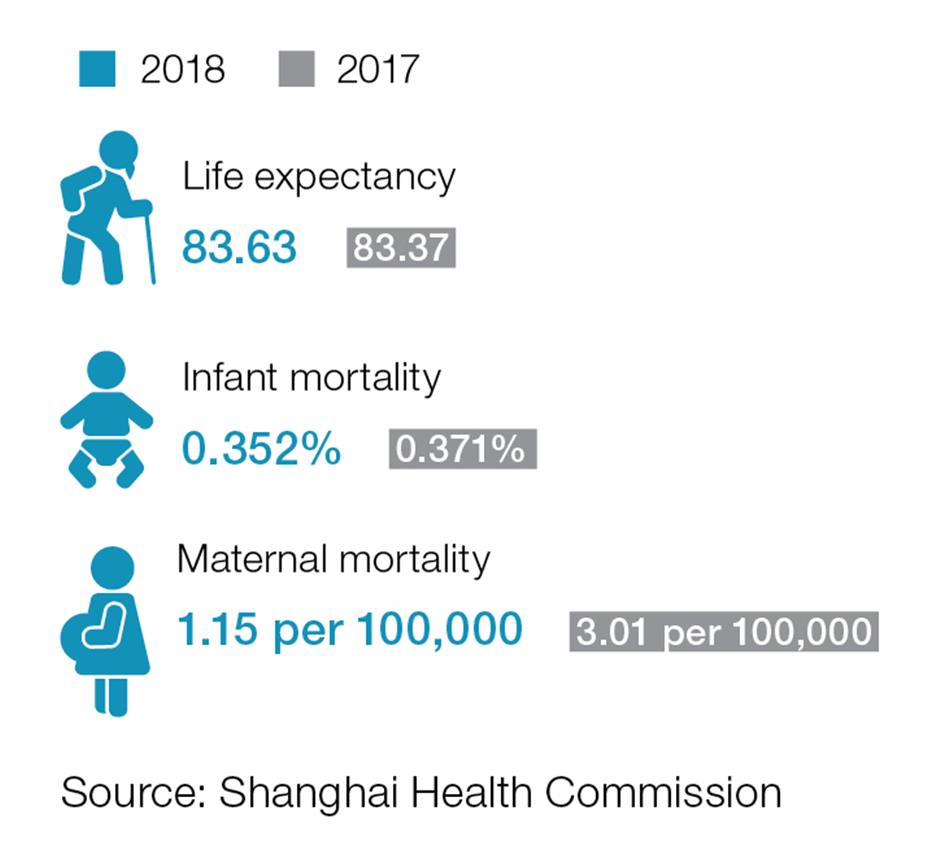Shanghai residents keep living longer and healthier

Old people and a care worker enjoy a light moment at a nursing home in Shanghai on January 21, 2019.
The average life expectancy of local registered residents was 83.63 years of age last year, rising by 0.26 years from the previous year, the Shanghai Health Commission said on Thursday.
The average life expectancy for the city’s female residents is 86.08 years, while it is 81.25 for men.
Maternal mortality also sat at a record low of 1.15 deaths per 100,000, while infant mortality was 3.52 per 1,000 babies.

All the above data, major indexes used by the World Health Organization to measure health level and medical capability in a region, have remained in a leading position across the nation and in line with developed countries and regions for more than a decade, the commission said.
They added that a public health network targeting disease prevention and control, a community-based health management system and high-end clinical ability are all important.
Currently, Shanghai residents can receive 42 basic public health services and over 99 percent of children are covered by the mandatory vaccination plan. The city is able to keep the prevalence of major infectious diseases at a very low level.
A network for critical pregnant women and newborn babies has been established in the city to carry out hospital transfers and organize group consultations and emergency rescues. The city also introduced a classified management system to give pregnant women different levels of monitoring to ensure the safety and health of women and children.
To build the city into a medical center for Asia, Shanghai has introduced a new plan to further improve the capability of leading majors and perfect a three-tiered health service system with 5,272 medical facilities.
To convenience the public, Shanghai has been promoting the services of general practitioners to give quicker and better service near patients’ homes. So far, over 6.7 million residents have visited their GPs at neighborhood health centers.
To enhance emergency treatment, Shanghai is perfecting a first aid system covering air, waterways and roads. So far there is one ambulance for every 30,000 residents, and they can reach patients within 12 minutes on average.
Wu Jinglei, director of Shanghai Health Commission, said Shanghai will further improve local residents’ health by building a GP-based community health system, perfecting the reform of public health hospitals and a disease prevention and control network. The city will also put more health resources into needy populations, including the elderly and cancer sufferers.















